The Cognitive Functions – What Are They?
When it comes to your Myers-Briggs® personality type, we tend to explain the terms in a very clinical, cold sense. Today I wanted to use more imagery to describe the cognitive functions. I wanted to describe them at their best, in a way that (hopefully) will create a picture in people’s minds of what they really mean. Maybe this is a very Ni thing of me, and sensors will be shaking their head at this post – but I hope you’ll enjoy it!
Not sure what your personality type is? Take our new personality questionnaire here. Or you can take the official MBTI® here.
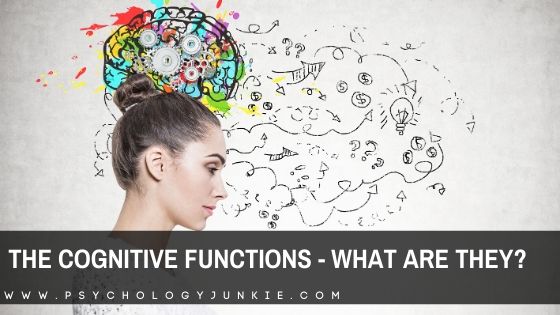
The Cognitive Functions – What Are They?
Introverted Intuition (“Ni”) – Dominant Function of the INFJ and INTJ personality types. Auxiliary Function of the ENFJ and ENTJ personality types.
“If you have built castles in the air, your work need not be lost; that is where they should be. Now put the foundations under them.” – Henry David Thoreau
Introverted Intuition: The ability to see multiple perspectives and decipher future implications and potentialities. Grasping abstractions over concrete data and looking for the underlying meaning behind all things.
You’re standing in the middle of a sparkling, snowy field. Ice crystals glimmer all around you, shimmering with different images and perspectives – but only for a moment. As an Intuitive-Judging personality type, the world around you is blurry. Details are not extremely precise and vivid – but within the blur of shimmering possibilities, there’s a sense that an insight will reveal itself to you. If you were to go chasing after each snowflake of possibility, you would wind up exhausted and confused. Instead, you’ve learned to rest in the snow, allowing all the flakes to fall where they may. Time becomes fluid, and you separate yourself from the present. You’re aware of the past, present, and future and the streams of time and how each action has a ripple effect on the future. There is no controlling the storm or stifling it. Instead, you allow it to flow around you until one image suddenly sparks an insight deep within your soul. Connections form like lightning bolts through your mind and suddenly a prediction becomes clear. You gather the images in your mind and put them in order, organizing them to understand what your insight truly means.
To you, life isn’t about understanding each of the snowflakes in detail. It’s about understanding the meaning and pattern of the storm. It’s looking for the rhythm, implications, and hidden meanings behind the swirling dance of time all around you.
Want to find out more? 10 Signs That You’re an Introverted Intuitive
Extraverted Intuition (“Ne”) – Dominant Function of the ENFP and ENTP Personality Types. Auxiliary Function of the INFP and INTP Personality Types.
“An idea that is not dangerous is unworthy of being called an idea at all.” – Oscar Wilde
Extraverted Intuition: The ability to see random connections and possibilities in the outside world. Grasping abstractions and theoretical potentialities rather than concrete details. A fascination with generating alternatives and “what-if’s”
You’re in a forest surrounded by various trees, plants, insects, and woodland creatures. In this wilderness, you see how everything is connected and dependant on each other. What might seem random actually has a meaning that few care to see. You see how the rotting logs are a habitat for thousands of insects and rodents. You see how the sunlight feeds the leaves of the trees. As you look around you, ideas spill out of your mind – one birthing another. Just like the forest is alive with life and activity, your mind is buzzing with possibilities and connections. You see interconnections that might seem random to other people but hum to life in your mind with startling clarity. You see potential in everything. From the creek rippling through the forest to the towering trees – everything in life is alive. Every idea has life just waiting to be breathed into it, and you see yourself as the catalyst ready to spark that life into existence. You want to bring energy to transformational ideas and change worn-out ideas and traditions that are out of synch with the ever-evolving connections around you.
To you, life isn’t about focusing on one tree and raising it to maturity. Life is about becoming one with the forest of ideas and possibilities all around you. It’s about transforming that forest into something powerful, glimmering, and energetic. You jump from tree limb to tree limb, chasing one possibility after the next – noticing something just out of reach that you want to explore. It’s a dance that might seem random and precarious to some, but breathes life into your soul.
Read This Next: 10 Signs That You Might Be an Extraverted Intuitive
Introverted Sensation (“Si”) – Dominant Function of the ISFJ and ISTJ Personality Types. Auxiliary Function of the ESFJ and ESTJ Personality Types.
“Those who do not remember the past are condemned to repeat it.” – George Santayana
Introverted Sensation: The ability to compare and contrast the present with the past; noticing changes, patterns, and discrepancies. The ability to sense the historical timeline of something and explain things in a linear, detailed fashion. A preference for routine, stability, and familiarity.
Like a tree with roots branching deeply into the earth, Introverted Sensation is what gives you a sense of stability and certainty in life. You are in touch with the wisdom of the past and grateful for each lesson life brings your way. With each bit of life experience, your roots become stronger – “I’m going to remember this,” you think, “this wisdom must be preserved.” As time moves forward and the world changes, you see reflections of the past in fleeting moments that pass other people by. You drive past an old abandoned building and it becomes alive in your mind with pictures from the past or ideas about what might have once been. You imagine people bustling around the building. Instead of broken windows and defaced walls, you see a vivid, colorful world where this building was once a respected part of the community. You imagine the person who dreamed up this building – you can almost picture their enthusiasm when it was completed. You are aware that each object around you has meaning and history behind it. An object isn’t simply an object, it’s a feeling and a memory and a collection of experiences. You preserve those experiences and aim to create a steady rhythm to life using the jewels of wisdom you’ve gleaned from your experiences.
To you, life isn’t about chasing after the new and sparkly things of the world as much as appreciating what came before and learning from it. You may, on occasion, enjoy change and innovation, but you don’t want to erase the memories and significance of previous experiences. Through creating routines and traditions you give life a sense of balance, continuity, and homeostasis.
Read This Next: 10 Signs That You Might Be an Introverted Sensor
Extraverted Sensation (“Se”) – Dominant Function of the ESTP and ESFP Personality Types. Auxiliary Function of the ISFP and ISTP Personality Types.
“Somebody should tell us, right at the start of our lives, that we are dying. Then we might live life to the limit, every minute of every day. Do it! I say. Whatever you want to do, do it now! There are only so many tomorrows.” – Pope Paul VI
Extraverted Sensation: The ability to grasp everything that is happening in the present moment and maximize opportunities that are currently available. Highly aware of concrete details and totally in-tune with present experiences and facts.
You’re standing on the edge of a diving board, readying yourself for your descent into the rippling cool surface below. You’re completely present in this moment, aware of your breathing, the steadiness of the board beneath your feet, and the breeze surrounding you. You ready yourself for your dive, becoming at once one with the atmosphere and then the cool water all around you. Whether you’re diving, driving, dancing, or playing a musical instrument, you believe in becoming one with your environment. Only through attentiveness to your surroundings can you make the most of each moment. Only through action can you participate in the living, breathing world surrounding you. Each taste, touch, and movement should be exquisitely enjoyed. When you bite into an apple, you taste every nuance of flavor and savor the crispness between your teeth and the juicy sweetness as it quenches you. When you caress someone you love, you feel enraptured by every nuance of the texture of their skin. Life is to be enjoyed, savored, and lived to the fullest. Whether you’re plummeting towards a pool of clear blue water or skiing the glistening slopes, you want to experience the world around you and play with it. Your childlike sense of wonder and adventure never leaves you, no matter how old you get.
To you, life isn’t about contemplating hypotheticals that may or may not ever happen. It’s about grasping the now and living in all its beauty and chaos. It’s about maximizing the moment and making it something overflowing with pleasure and delicious experiences.
Read This Next: 10 Signs That You Might Be an Extraverted Sensor
Introverted Feeling (“Fi”) – Dominant Function of the INFP and ISFP Personality Types. Auxiliary Function of the ENFP and ESFP Personality Types.
“To be yourself in a world that is constantly trying to make you something else is the greatest accomplishment.” – Ralph Waldo Emerson
Introverted Feeling: Considering what is important and what one’s own subjective values are. Notices inconsistencies between actions and espoused values, and as a result is very attuned to what is authentic or inauthentic. Highly aware of what feels right or wrong to one’s self and strives to live in accordance with that.
The world is buzzing all around you with influences and pressures. While your friends are keeping up with the Jones’s, and your parents are begging you to follow in their footsteps, you press pause. Everything becomes quiet and still. In that moment, you pull away from the demands and voices surrounding you and dig deep into your heart and soul. “I must think for myself,” you repeat. You crave inner freedom and harmony more than the nods and accolades of the people around you. Like the snow leopard, you don’t need a “pride” around you. You follow your inner compass, weighing the situational worth of everything happening around you. To create a beautiful life you must travel your own path even if it means facing the scorn of your peers. Sometimes your choices are in alignment with your loved ones and life feels calm and tranquil. Inner harmony is matched with outer harmony and peace. But when you believe something to be right or wrong in your soul, nobody can change your mind. You’ll go down with the ship for what you believe.
To you, life isn’t about not making waves or fitting in. It’s about finding your authentic inner voice and following it with determination and boldness. It’s about standing up for the people and creatures that are overlooked by the masses. It’s about accepting yourself, quirks and all – and loving yourself for them.
Read This Next: 10 Signs That You Might Be an Introverted Feeler
Extraverted Feeling (“Fe”) – Dominant Function of the ENFJ and ESFJ Personality Types. Auxiliary Function of the INFJ and ISFJ Personality Types.
“Words are like the wind. They will blow away your own footsteps but they also will blow away the footsteps and thoughts of others. Use them wisely and with care.” – Brent M. Jones
Extraverted Feeling: Monitors the environment for morale or disharmony and tries to create an environment where people feel happy and welcome. Discloses personal details to establish rapport. Is usually very aware of social niceties, good manners, and expectations of others. “Absorbs” the emotions of other people in real-time to sense how they’re feeling.
Like the air you breathe every day, you inhale emotions wherever you go. Just as a foul or delectable scent can’t help but be noticed, so you notice the rapture and turmoil of the people in your environment. Moods waft through the air like perfumes – some refreshing and joyous, others pungent and hard to ignore. Just as one can struggle to breathe around the grotesque stink of a skunk, you struggle to find peace in an environment where there is emotional upheaval. You live to reconcile the various moods in the atmosphere, using courtesies, solidarity, and, at times, confrontation, to bring the atmosphere to a place of harmonious flow. You realize that every word you use has an effect on the emotional equilibrium of the room you’re in, so you choose your words carefully – anticipating their effect and wielding them with a mastery that many others can only dream of. Sometimes you use your words to make peace, and at other times you use them to rile people up and catalyze them towards action. You believe the best actions are ones that will have a positive impact on humanity – not just one person, but the whole. You look for consensus, but if you can’t attain it you’ll follow your own path in order to benefit the most people.
To you, life isn’t about the individual but the collective. You believe that you have a vital part to play in your community, family, or environment, and you will use your words and talents to improve the lives of as many people as you can.
Read This Next: 10 Signs That You Might Be an Extraverted Feeler
Introverted Thinking (“Ti”) – Dominant Function of the INTP and ISTP Personality Types. Auxiliary Function of the ENTP and ESTP Personality Types.
“Genius, it is said, is the ability to scrutinize the obvious.” – Dallas Willard
Introverted Thinking: Analyzes, categorizes, and organizes internal principles and truths to try to figure out how the world works. Notices the fine distinctions between things and creates categories and sub-categories to classify everything in the most accurate, precise way possible. It looks at many sides of an issue to find inconsistencies; always searching for the most extreme form of truth.
The world around you is filled with layers upon layers of meaning. Like sand bordering a vast ocean, you sift through data and information, purging impurities and inaccuracies. While someone next to you might look at a rock and say, “it’s a rock,” you’d look at the rock and sort out which category it fit into: quartz or granite, slate or anthracite. You can weigh a problem and see it from many different vantage points and angles, like a prism that can create dazzling spectacles of light depending on how you hold it. You notice inconsistencies and leverage points that other people miss in their hurry to make something happen. Independent and mysterious, people are often puzzled by your detached, analytical demeanor. A lot of your thinking flows under the surface, and when you make your thoughts clear, they may come as a shock to people who didn’t realize how much mental energy you were using. You create brilliant solutions that lie beyond the bounds of the obvious. Rather than following protocols, you burn the rulebook and find hidden truths in the ashes. Creating original mental frameworks, blueprints, and connections gives you a buzz of enjoyment and satisfaction.
To you, life isn’t about knowing “just enough” to make something happen – it’s about forming your own independent, logically sound truths.
Read This Next: 10 Signs That You Might Be an Introverted Thinker
Extraverted Thinking (“Te”) – Dominant Function of the ENTJ and ESTJ Personality Types. Auxiliary Function of the INTJ and ISTJ Personality Types.
“Chaos is merely order waiting to be deciphered.” – José Saramago
Extraverted Thinking: Applies logic, order and efficiency to the outer world. Easily notices inefficiency or flaws in a system or plan and is skilled at streamlining processes. Expresses thoughts directly, and is skilled at critiquing, directing, and organizing. Takes decisive action and focuses on objective logic and data to make decisions and create plans.
You walk with determination through any storm, but rather than get overwhelmed by it, you harness all your mental powers to create a sense of order and structure around you. You bend your environment to your will, creating processes, streamlining projects, and putting things where they belong. You create a world that makes sense – where people can find what they need, and where goals that once seemed insurmountable are now achievable. You know how to compartmentalize your emotional responses so that you can get a job done, and you seem to have an innate insight into which people will excel at particular projects. Delegating, organizing, and explaining are things that you have a natural propensity for. You’re a fighter – standing strong against the waves of upheaval, disorder, and chaos that seek to dismantle your vision. You believe that everything, no matter how messy, can be put into order. Using clear-headed logic and empirical thinking, you organize yourself and others for success.
To you, life isn’t about getting lost in details and over-analysis. It’s about going after your goals and marshaling forces to get plans into action! You help people by making sense of the chaos in their lives and organizing systems to meet their needs.
What Are Your Thoughts?
Did you enjoy this article? Do you have any thoughts or insights to add? Let us know in the comments!
Find out more about your personality type in our eBooks, Discovering You: Unlocking the Power of Personality Type, The INFJ – Understanding the Mystic, and The INFP – Understanding the Dreamer. You can also connect with me via Facebook, Instagram, or Twitter!


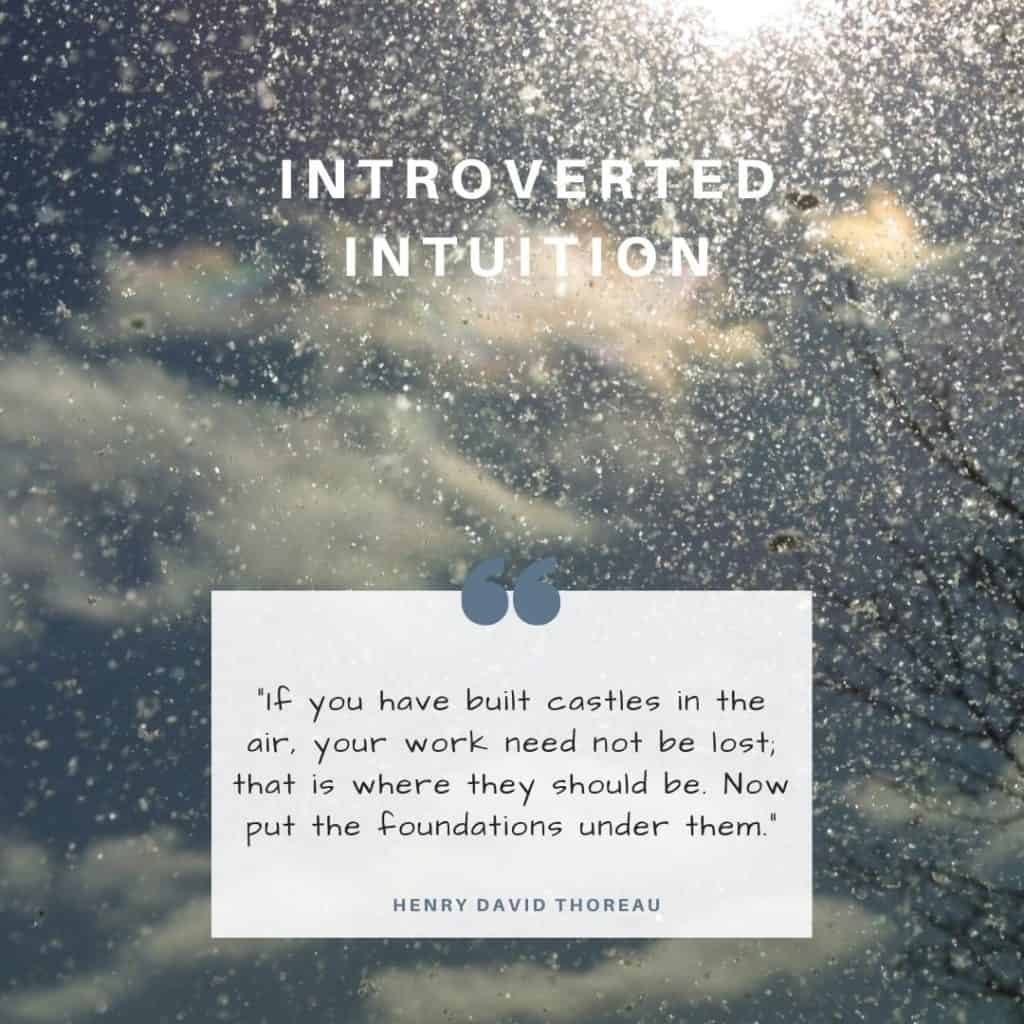

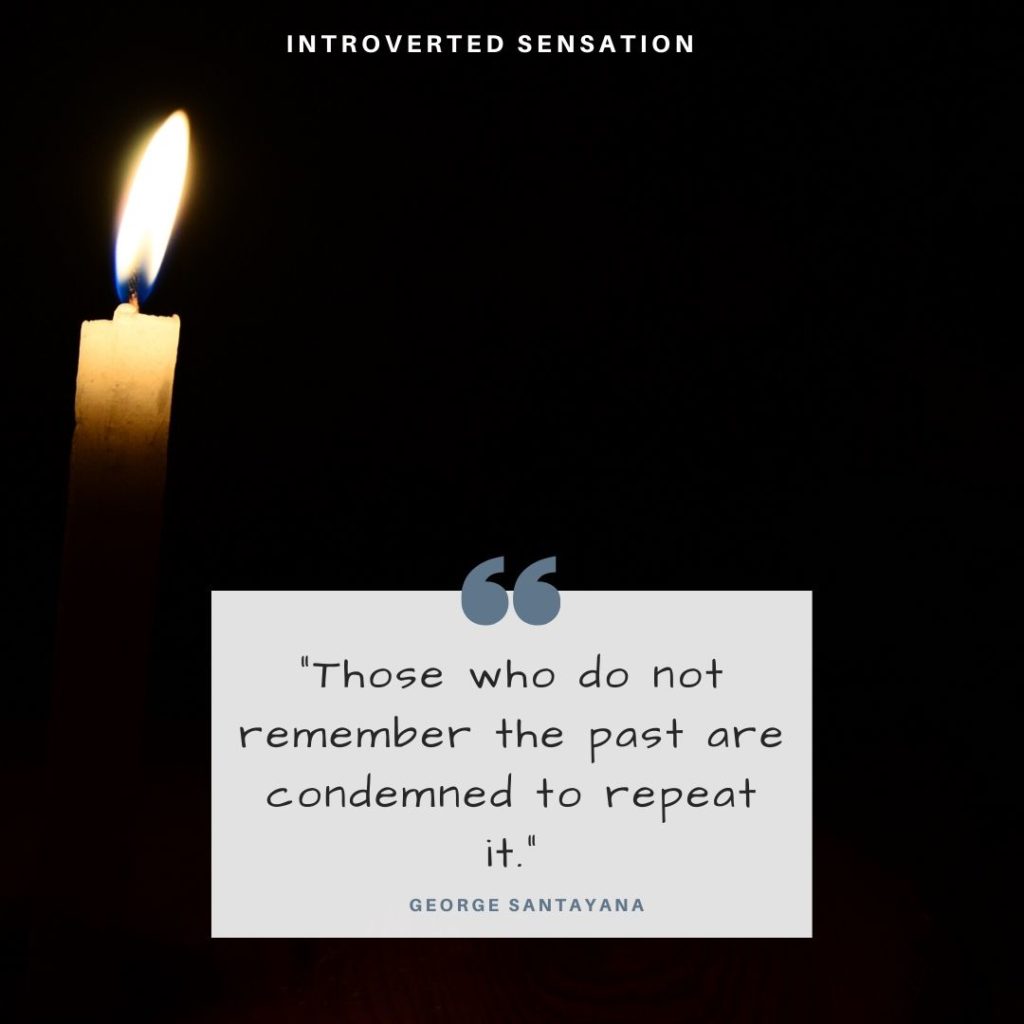



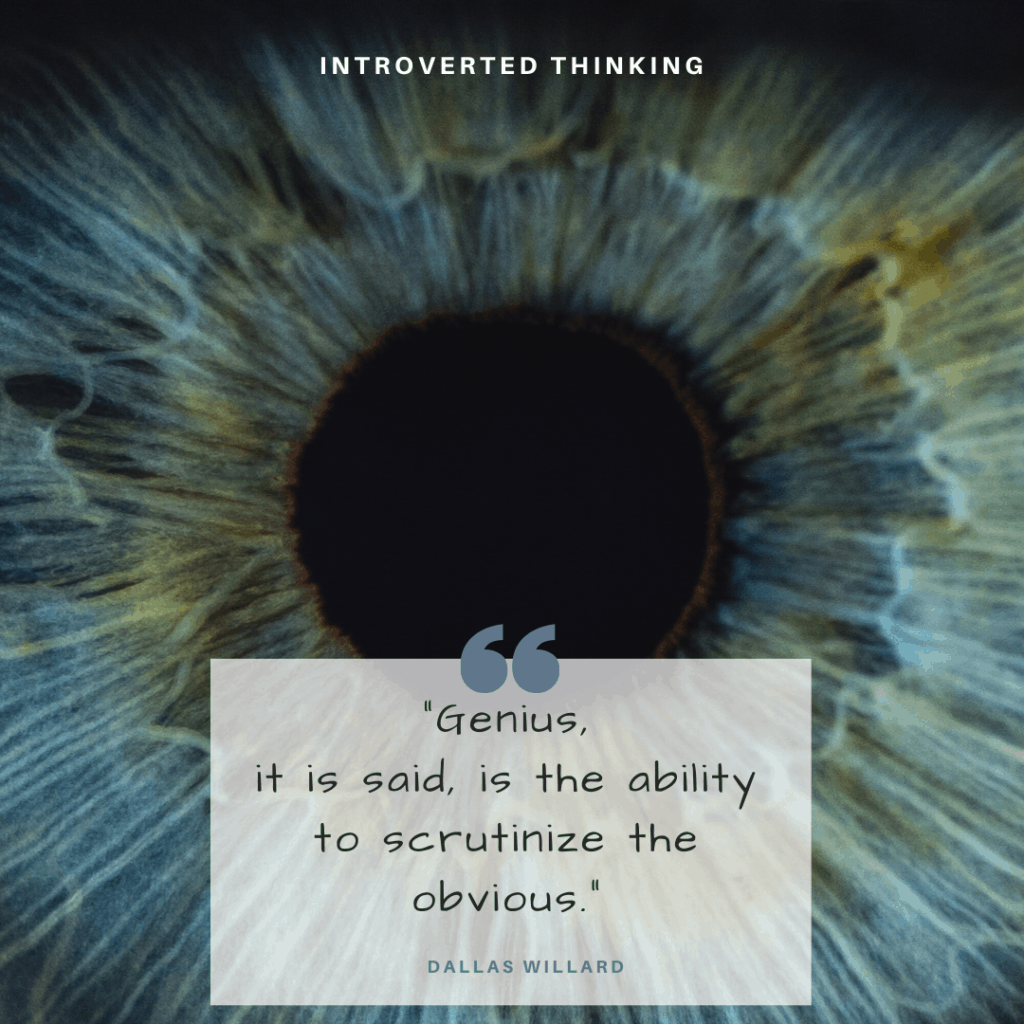



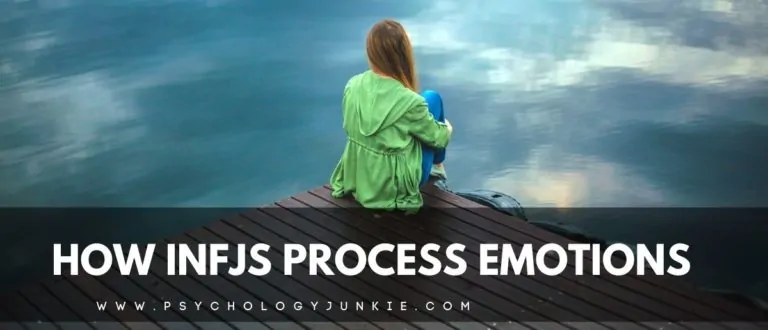
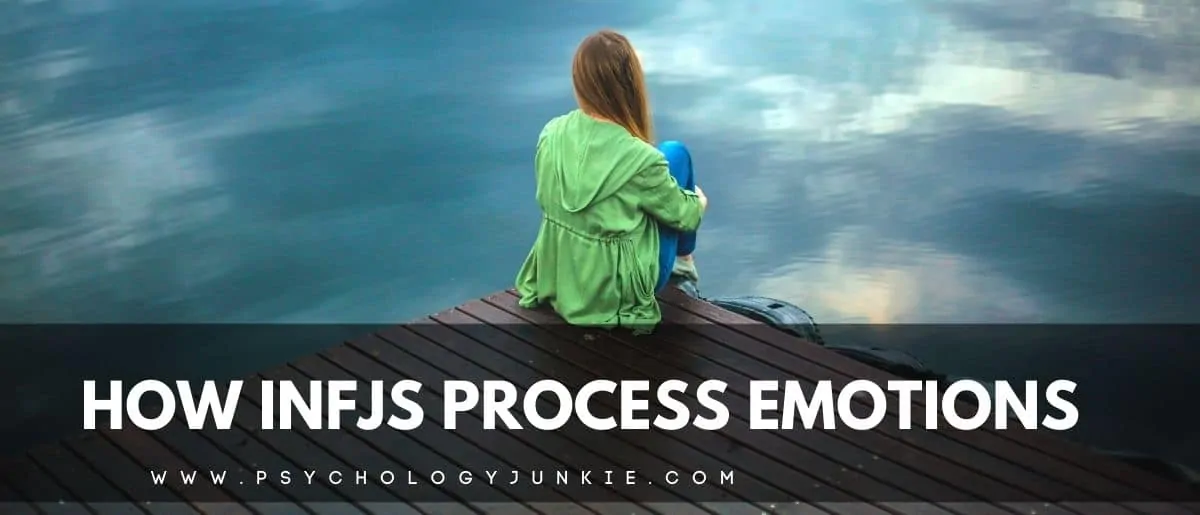

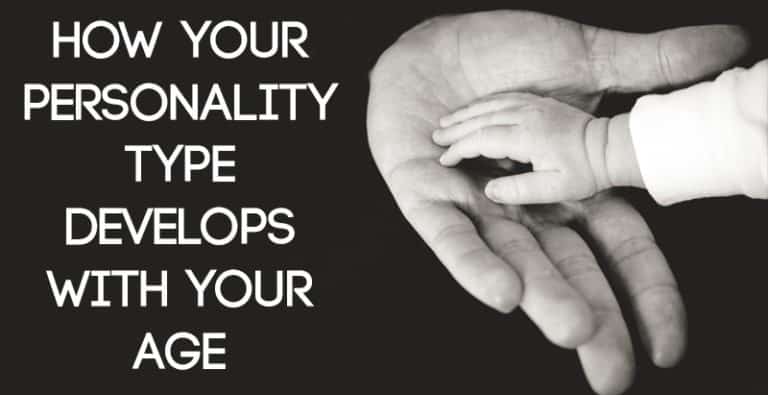
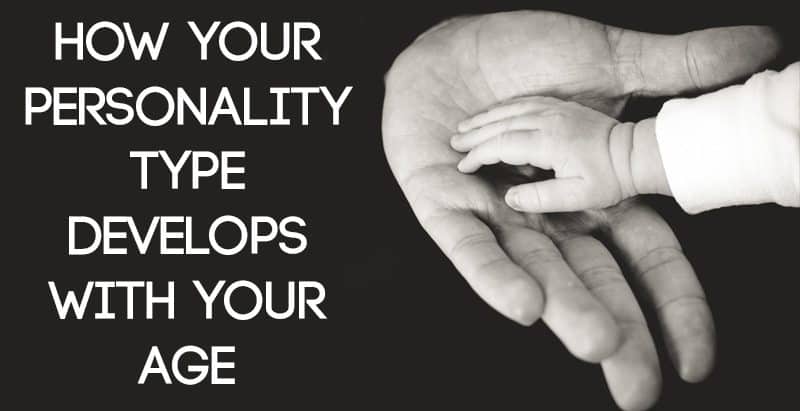





Nice article!
This is a great and clear representation of the cognitive functions. Thanks a lot for this insightful article. I just wonder why I relate to Fi more than Fe, while I am officially tested as an INFJ on both MBTI and Keirsey. I tend to think that I am too emotional to be an INTJ or rationals in general. That’s why I relate to the Idealists and the INFJ in particular. Maybe I’m wrong and my view of the INTJ might be stereotypical. I don’t rule out this possibility. Is it possible to be an INFJ with high Fi or am I mistyped? Is it possible that I’m a very emotional INTJ instead? I’ve been struggling with this for a while, so I would really like to know.
You might like to look into Dr Dario Nardi and the four INTJ subtypes. The harmonising subtype is more sensitive and in tune with typically-Fe concerns so often mistypes as INFJ.
Amazing ????
A new detective INTJ is appeared: Benoit Blanc … His allegory of the donut is entered in the cinema history. And it’s a (Ni) caricatural allegory. The INTJ detective develops his theory like a spiral with a concentric movement then magine the different scenarios from the data to find the right one.
In comparison, the INTP detective develops his theory like a spiral with an eccentric movement. He has an ability to create a tree from a seed. He is the ferryman from a visible world to an invisible world, the one who holds the key that opens the little door to the dismal garden, the very one who, through a second back door, leads to Wonderland …Then, indifferent to compliments, almost dissatisfied of his work, he returns to his pile of grimoires.
Sherlock Holmes (BBC), by his immediate ability to create connections between items in front of him, as well as his permanent irritability, corresponds to an INTP with an hyper activity disorder. In reason of this last point, he can be confused with a J.
The world around you is filled with layers upon layers of meaning. Like sand bordering a vast ocean, you sift through data and information, purging impurities and inaccuracies. While someone next to you might look at a rock and say, “it’s a rock,” you’d look at the rock and sort out which category it fit into: quartz or granite, slate or anthracite
Meanwhile my Fi asks whether God put that rock there, or created it and then physics laws put it there. And whether perhaps stones too have feelings, or talk to each other.
But yes, certainly thinking “it’s a rock” and walking away satisfied is impossible.
This page is impressively written.